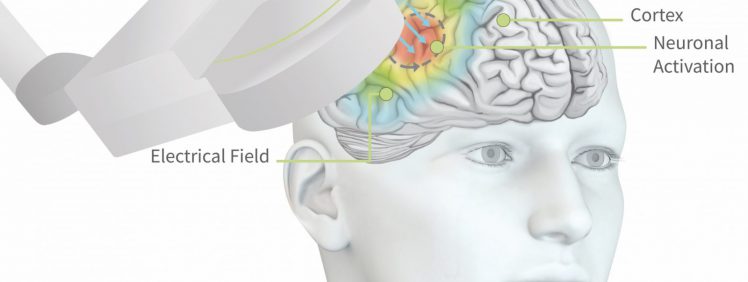[vc_row][vc_column][vc_column_text][WP-Coder id="1"][/vc_column_text][vc_column_text]During a fascinating inteview Dr Sanil Rege, Founder of Psych Scene and Psych Scene Hub speaks with Dr Martijn Arns, touching many subjects in the field of neuroscience. This interview was originally published on the Psych Scene Hub website.[/vc_column_text][vc_column_text el_class="maintext"] 1 2 3 4 5 6 7 8 9 10 11 12 13 [/vc_column_text][vc_empty_space height="50px"][/vc_column][/vc_row][vc_row][vc_column][vc_column_text el_class="maintext"] An introduction to neurofeedback: neurofeedback in ADHD and insomnia: rTMS in depression and OCD Dr Martijn Arns : neurofeedback revolution for ADHD & TDAH? [/vc_column_text][/vc_column][/vc_row]
deymed-duomag-rtms-equipment
[vc_row][vc_column][vc_column_text][WP-Coder id="1"][/vc_column_text][vc_column_text el_class="maintext"] Deymed DuoMag XT rTMS equipment [/vc_column_text][vc_column_text el_class="maintext"]This equipment has been developed recently and thus based on the latest technical insights. The DuoMag rTMS equipment can be used for different rTMS treatment protocols and for scientific research. Depending on what you need, there are 3 different models. Below are the specifications of these different models. In general, these are all rTMS devices with a bi-phasic pulse, wherein the number behind XT indicates the maximum frequency in Hz in 50% of the stimulator output. You can download the brochure here. Product specs DuoMAg XT10 DuoMAg XT40 DuoMAg XT100 Pulse modus...
magstim-rtms-stimulator
[vc_row][vc_column][vc_column_text][WP-Coder id="1"][/vc_column_text][vc_column_text] MagStim Rapid2 rTMS stimulator with AirFilm coil [/vc_column_text][vc_column_text el_class="maintext"]The Magstim Rapid ² is a repetitive stimulator with high frequency capabilities and can also be used for single-pulse protocols. This equipment is suitable for therapeutic purposes and for research purposes, and is currently the most commonly used equipment in research. You can download a product brochure of the Magstim Rapid2 here. Product specs Magstim Rapid2 (single PSU) Magstim Rapid2 (dual PSU) Pulse modus Bi-phasic, repetitive Bi-phasic, repetitive Stimulation intensity 100% 15Hz 41Hz Stimulation intensity 50% 30Hz 97Hz Max. repetitive rate 50Hz 100Hz Min. interstimulus interval N/A N/A Pulse width 320us 320us Coil...
rtms-equipment
[vc_row][vc_column][vc_column_text][WP-Coder id="1"][/vc_column_text][vc_column_text] rTMS equipment: MagStim Rapid2 and Deymed DuoMag [/vc_column_text][vc_empty_space height="50px"][vc_column_text el_class="maintext"]In our practice, we have been carrying out rTMS in the treatment of depression for a long time now. There are two devices that we work with. Below the two types of devices are described. If you are interested to apply rTMS in your own practice, please contact us for advice, a rTMS course or a quotation for the following equipment. Both systems are medical CE approved. What is rTMS? rTMS stands for Repetitive Transcranial Magnetic Stimulation or repetitive magnetic brain stimulation. When applying rTMS, a coil is put at a particular location on...
iSPOT
[vc_row][vc_column][vc_column_text][WP-Coder id="1"][/vc_column_text][vc_row_inner][vc_column_inner][vc_single_image image="4952" img_size="full" alignment="center"][/vc_column_inner][/vc_row_inner][/vc_column][/vc_row][vc_row][vc_column][vc_column_text] About the ISPOT-A study [/vc_column_text][vc_column_text el_class="maintext"]The International Study to Predict Optimized Treatment in Attention Deficit/Hyperactivity Disorder is a long running multicentre and open-label trial to identify biomarkers of ADHD and predict treatment response to short-acting methylphenidate in children and adolescents diagnosed with this disorder. The primary outcome measure is to determine whether the genetic-brain-cognition function markers (or combination of markers) 'normalize' with acute drug treatment in ADHD, while the secondary outcome measure determines whether markers of acute treatment prediction are also predictive of functional outcome over 6-12 months. The Brainclinics Research Institute Our institute is...
Time to redefine ADHD?
[vc_row][vc_column][vc_column_text][WP-Coder id="1"][/vc_column_text][vc_column_text] The role of the circadian system in the etiology and pathophysiology of adhd: time to redefine adhd? [/vc_column_text][vc_column_text el_class="maintext"]Denise Bijlenga 1, Madelon A. Vollebregt 2,3, J. J. Sandra Kooij 1,4, Martijn Arns 2,5,6 PsyQ Expertise Center Adult ADHD, Carel Reinierszkade 197, 2593 HR The Hague, The Netherlands Research Institute Brainclinics, Nijmegen, The Netherlands Department of Cognitive Neuroscience, Radboud University Medical Centre, Donders Institute for Brain, Cognition and Behaviour, Nijmegen, The Netherlands Department of Psychiatry, VU University Medical Center, Amsterdam Public Health Research Institute, Amsterdam, The Netherlands Department of Experimental Psychology, Utrecht University, Utrecht, The Netherlands neuroCare Group, Munich,...
consensusverklaring

[vc_row][vc_column][vc_column_text][WP-Coder id="1"] [/vc_column_text][/vc_column][/vc_row][vc_row][vc_column][vc_column_text] Paradigmaverschuiving binnen de psychiatrie: Standaarden voor magnetische hersenstimulatie bij depressie [/vc_column_text][vc_column_text el_class="maintext"]Nijmegen, 18 juni 2019 –Na meer dan 30 jaar onderzoek naar transcraniële magnetische hersenstimulatie (rTMS) bij de behandeling van depressie, dringt deze techniek steeds verder door in de psychiatrische en psychologische behandelpraktijk. Om die reden hebben verschillende onderzoekers en instanties (waaronder Onderzoeksinstituut Brainclinics, NedKAD en de hersenstimulatiestichting) zojuist een consensusverklaring gepubliceerd in het tijdschrift voor psychiatrie. Deze verklaring dient ter verduidelijking van de rol en plek van magnetische hersenstimulatie bij de behandeling van depressie maar ook als handvat om deze techniek effectief en veilig toe te...
Cookie policy
[vc_row][vc_column][vc_column_text el_class="maintext"][WP-Coder id="1"][cmplz-document type="cookie-statement"][/vc_column_text][/vc_column][/vc_row]
neurosupplies
[vc_row][vc_column][vc_column_text] introduction we offer all neurosupplies equipment and supplies integneuro [/vc_column_text][vc_column_text] Neurosupplies [/vc_column_text][vc_empty_space height="50px"][/vc_column][/vc_row][vc_row][vc_column width="1/3"][/vc_column][vc_column width="1/3"][vc_column_text] Download orderformulier/prijslijst (excel): Download order form/price list (excel): Order Form [/vc_column_text][/vc_column][vc_column width="1/3"][/vc_column][/vc_row][vc_row][vc_column width="1/2"][vc_column_text] neurosupplies equipment and supplies Beste klant, Onderzoeksinstituut Brainclinics is pionier op het gebied van rTMS en Neurofeedback technieken in Nederland en heeft een schat aan ervaring opgebouwd met apparatuur en benodigdheden op dit gebied. Wij staan volledig achter de producten die wij aanbieden. Vanaf deze pagina kunt u neurobenodigdheden bestellen of een offerte aanvragen. Neem contact met ons op als u vragen heeft of advies wilt. Bestelprocedure U kunt op elk...
Neurofeedback and ADHD
[vc_row][vc_column][vc_column_text][WP-Coder id="2"][/vc_column_text][vc_column_text] Neurofeedback as a Treatment Intervention in ADHD: Current Evidence and Practice [/vc_column_text][vc_column_text el_class="maintext"]Stefanie Enriquez-Geppert 1,2 & Diede Smit 1 & Miguel Garcia Pimenta 1 & Martijn Arns 3,4,5 Department of Clinical and Developmental Neuropsychology, Faculty of Behavioural and Social Sciences, University of Groningen, Groningen, The Netherlands Department of Biomedical Sciences of Cells & Systems, Section of Cognitive Neuropsychiatry, University of Groningen, Groningen, The Netherlands Department of Experimental Psychology, Utrecht University, Utrecht, The Netherlands neuroCare Group, Munich, Germany Research Institute Brainclinics, Nijmegen, The Netherlands Published online: 28 May 2019 Abstract Purpose of Review Current traditional treatments for ADHD present...
